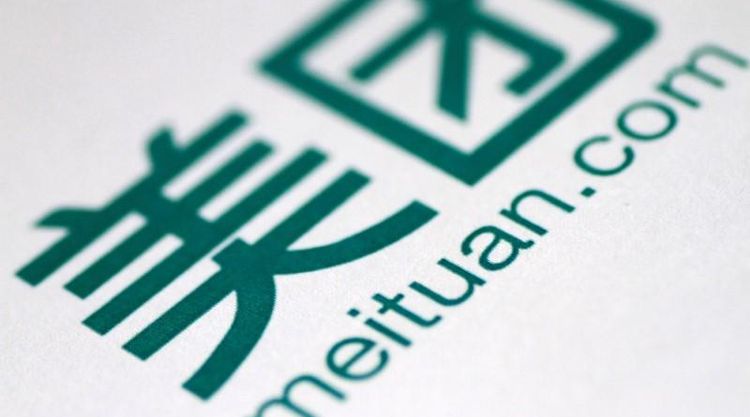Meituan Dianping, the world’s fourth-most valuable tech startup, revealed huge losses but also a scorching pace of growth when it filed for a much-anticipated Hong Kong initial public offering.
The company is turning to public markets to raise cash for a costly battle against some of China’s biggest internet companies, particularly as it ventures into new arenas from ride-hailing and finance to travel. Meituan, of which social media giant Tencent Holdings Ltd. owns more than a fifth, posted a net loss of 19 billion yuan ($2.9 billion) last year, hurt by ballooning marketing and research spending and after accounting for its preferred stock. However, the internet company more than doubled revenue to 33.9 billion yuan.
It joins smartphone maker Xiaomi Corp. in targeting an IPO in Hong Kong after the former British colony revised regulations to attract the major tech listings it’s lost out on in the past. Meituan didn’t disclose objectives but the food delivery and restaurant reviews service was said to have been targeting a $6 billion fundraising at a valuation of about $60 billion — rivaling Xiaomi’s goal of as much as $6.1 billion in what would be the world’s largest IPO in two years.
Meituan will try to get investors to focus on its rapid top-line expansion, in the tradition of Amazon.com Inc. and other fast-growth firms that bled money for years. It remains to be seen if the market will overlook its significant spending on marketing as it fends off a crop of deep-pocketed rivals from ride-hailing giant Didi Chuxing to Alibaba Group Holding Ltd.
Assuming a $60 billion valuation, its price relative to the value of its transactions would be higher than its peers, said Li Yujie, an analyst with RHB Research Institute Sdn in Hong Kong. “Meituan might be basing this on its stronger abilities to monetize its platform, based on its various services.”
Chief Executive Officer Wang Xing founded Meituan.com in 2010 as a group-buying site similar to Groupon Inc. before a 2015 merger with Dianping, which provided reviews of restaurants and other local businesses. Wang will remain controlling shareholder after it lists, according to the filing.
The combined company handled $57 billion of transactions last year between more than 300 million annual active buyers — about the size of the American population — and more than four million merchants. It’s more recently expanded into areas such as ride-sharing, bikes and travel. With a few taps to navigate its smartphone apps, Chinese customers can order up hot meals, groceries, massages, haircuts and manicures at home or in the office.
Meituan’s debut is another signal of China’s rising technology might — a flashpoint for tensions with the U.S. A generation of up-and-comers like Meituan and ride-hailing giant Didi Chuxing are emerging to build out an internet industry long dominated by social media giant Tencent, e-commerce player Alibaba and search engine operator Baidu Inc. Bloomberg News reported its filing and results Friday.
The debutante was most recently valued at $30 billion, making it the world’s fourth most valuable startup according to CB Insights.
Xiaomi is also unprofitable and lost more than $1 billion in the first three months of 2018 alone. After adjusting for share-based compensation and other items, Meituan’s loss for the year came to 2.9 billion yuan. The company booked a loss of more than 15 billion yuan to account for changes in the value of convertible redeemable preferred shares.
“As the market leader, they have significant sales growth potential, but this would come with sizeable marketing investments as well,” said Vey-Sern Ling, a Bloomberg Intelligence analyst. And “they are moving into segments which have lower margins.”
An IPO would give Meituan additional capital to compete and expand. The company however faces formidable rivals in key businesses. It’s competing with entities backed by Alibaba in food delivery, with Didi Chuxing in ride hailing, with Ctrip in travel, and even with its own backer Tencent in payments. It also butting heads with Ofo after getting into bike sharing with a $2.7 billion deal for Mobike, according to its filing. Ironically, Alibaba still owns almost 1.5 percent of Meituan, a holdover from an early funding round.
Meituan is also considered a prime candidate to eventually sell Chinese depositary shares, a government program to give more opportunities to domestic investors and stem a corporate exodus to overseas markets. Its other existing backers include Booking Holdings Inc., Sequoia Capital, Canada Pension Plan Investment Board, Trustbridge Partners, Tiger Global Management, Coatue Management and Singaporean sovereign wealth fund GIC.
The joint sponsors of the IPO are Goldman Sachs Group Inc., Morgan Stanley and Bank of America Merrill Lynch. China Renaissance is sole financial adviser, according to the filing.
“Operating loss is narrowing because of scale, as revenue growth outpaces costs. In the long term if the trend continues we should see profits,” Ling said.
Also Read:
Tencent-backed internet giant Meituan said to file for Hong Kong IPO
Meituan-Dianping to buy large stake in Chinese bike-sharing major Mobike
Bloomberg




